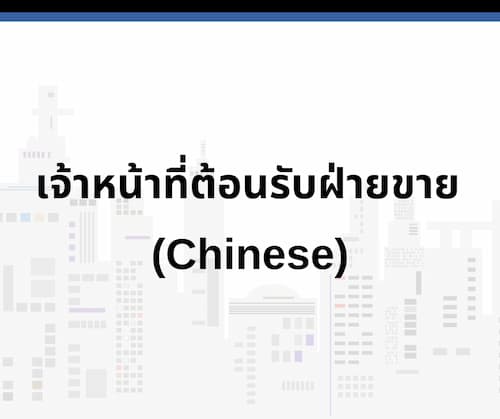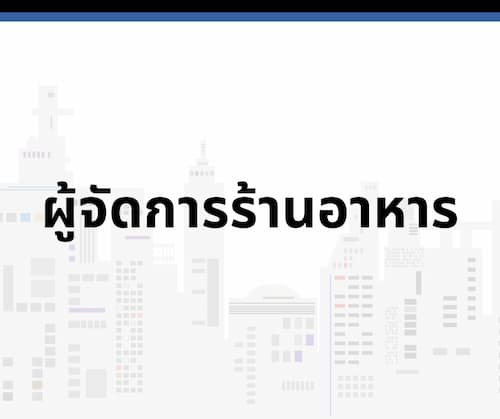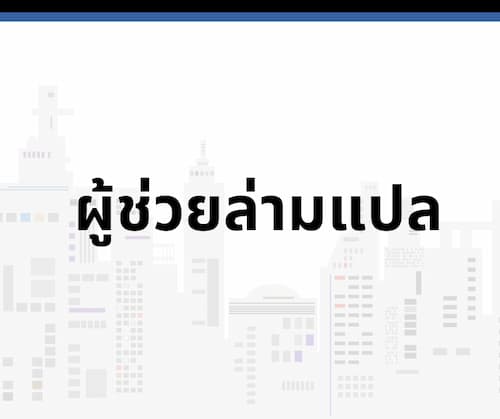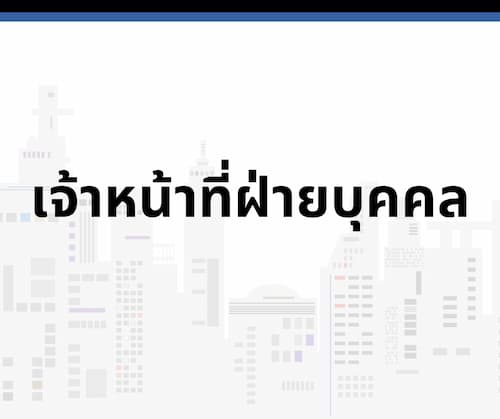ผู้จัดการฝ่ายการเงิน
เกี่ยวกับ TMA Group
TMA Group เป็นบริษัทที่เชี่ยวชาญด้านการสรรหาบุคลากรและการให้คำปรึกษาทางธุรกิจในประเทศไทย มุ่งมั่นที่จะให้บริการครบวงจรแก่ทั้งองค์กรและบุคคล รวมถึงการสรรหาบุคลากร การบริหารจัดการทางการเงิน การจัดการภาษี การให้คำปรึกษาด้านกฎหมาย การบริหารจัดการทรัพยากรมนุษย์ และบริการอื่นๆ หากท่านต้องการข้อมูลเพิ่มเติมเกี่ยวกับการลงทุนในประเทศไทย ยินดีต้อนรับติดต่อเราตลอดเวลา
ผู้จัดการฝ่ายการเงิน
Job title : | ผู้จัดการฝ่ายการเงิน |
Emp type : | Full-time |
Business : | การผลิตเครื่องจักรอื่นๆที่ใช้งานทั่วไปซึ่งมิได้จัดประเภทไว้ในที่อื่น |
Skills : | ภาษาจีน |
Salary type : | เดือน |
Salary from : | 65,000-75,000 THB |
| Location : | อำเภอนิคมพัฒนา จังหวัดระยอง |
Qualifications:
วุฒิการศึกษาปริญญาตรีขึ้นไป
-สามารถสื่อสารภาษาจีนได้ อย่างคล่องแคล่ว
-มีประสบการณ์ตำแหน่งผู้จัดการ ฝ่ายการเงินมากกว่า 3 ปี
-คุ้นเคยกับงานที่เกี่ยวข้องกับ การเงิน
-สามารถขับรถได้
Key Responsibilities:
จัดทำบัญชีและออกงบการเงินที่เกี่ยวข้อง พร้อมตรวจสอบรายงานภาษีประจำเดือน
ทำการหักภาษีเงินได้บุคคลธรรมดา ล่วงหน้า (เงินเดือน) P.N.D.1,P.N.D.3
ทำการหักภาษีเงินได้นิติบุคคล P.N.D.53
คำนวณและยื่นภาษีมูลค่าเพิ่ม P.P.30 รวมถึงการจัดส่งบิลตามเวลาที่กำหนด
ปิดบัญชีสิ้นปี คำนวณรายรับรายจ่าย คำนวณต้นทุนและกำไร
จัดทำรายงานภาษีครึ่งปีของบริษัท P.N.D.51 และรายงานภาษีประจำปีของ บริษัท P.N.D.50
ดำเนินการเรื่องการขอคืนภาษี เช่น ภาษีมูลค่าเพิ่ม และภาษีหัก ณ ที่จ่าย
ให้คำปรึกษาทางการบัญชีและภาษี และเตรียมเอกสารบัญชีในขณะตรวจสอบ
1. สถานีนี้ปฏิบัติตามมาตรฐานในวงการ และทุกบทความที่ถูกคัดลอกจะถูกทำเครื่องหมายชัดเจนว่าเป็นของผู้เขียนและแหล่งที่มา; 2. บทความต้นฉบับของสถานีนี้ โปรดระบุผู้เขียนและแหล่งที่มาเมื่อมีการคัดลอก เราจะดำเนินการตามกฎหมายต่อผู้ที่ไม่เคารพสิทธิของผู้เขียน; 3. การส่งบทความของผู้เขียนอาจถูกดำเนินการแก้ไขหรือเพิ่มเติมโดยบรรณาธิการของเราในบางกรณีที่เหมาะสม














